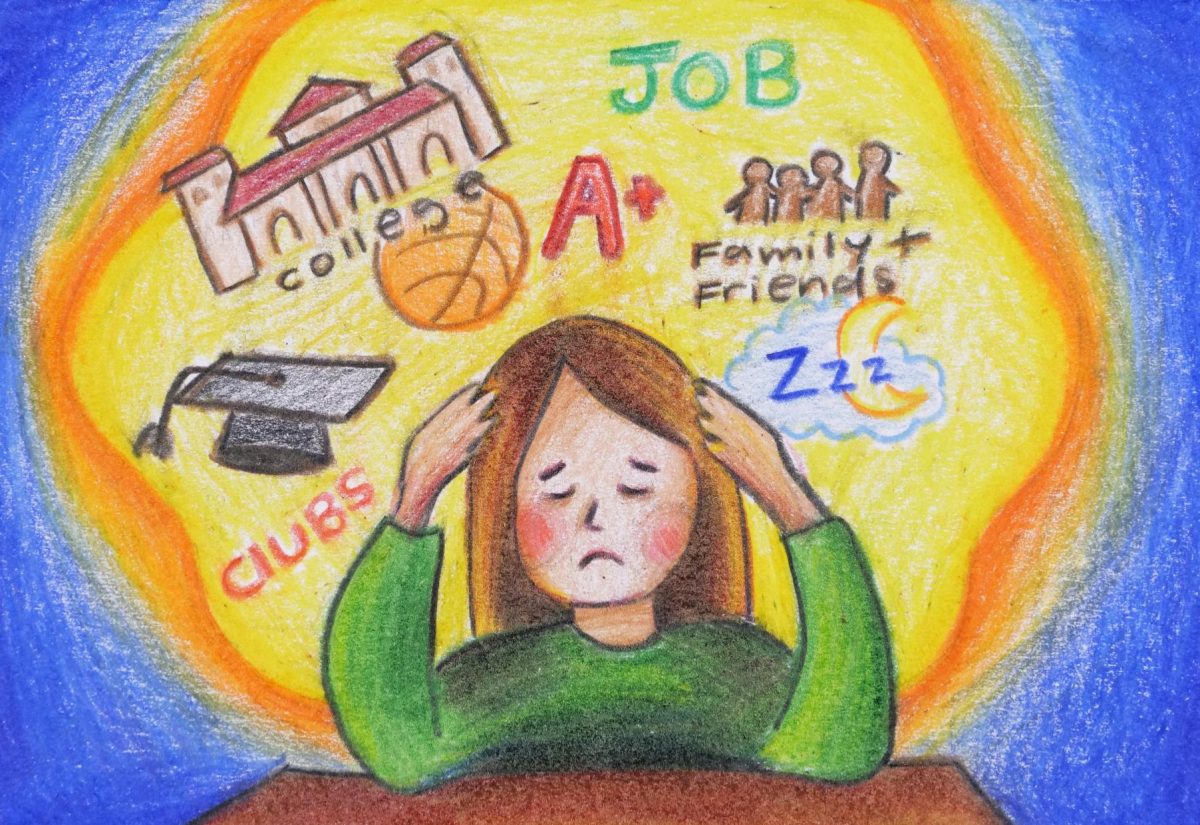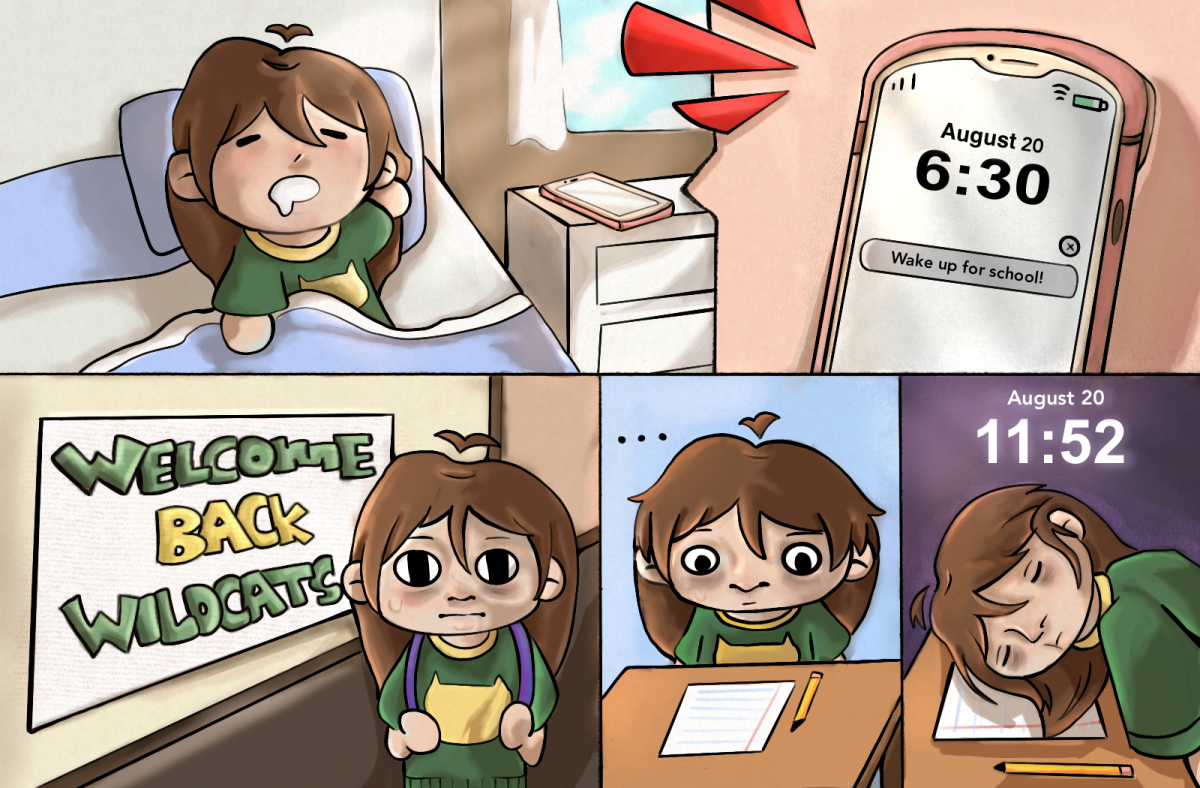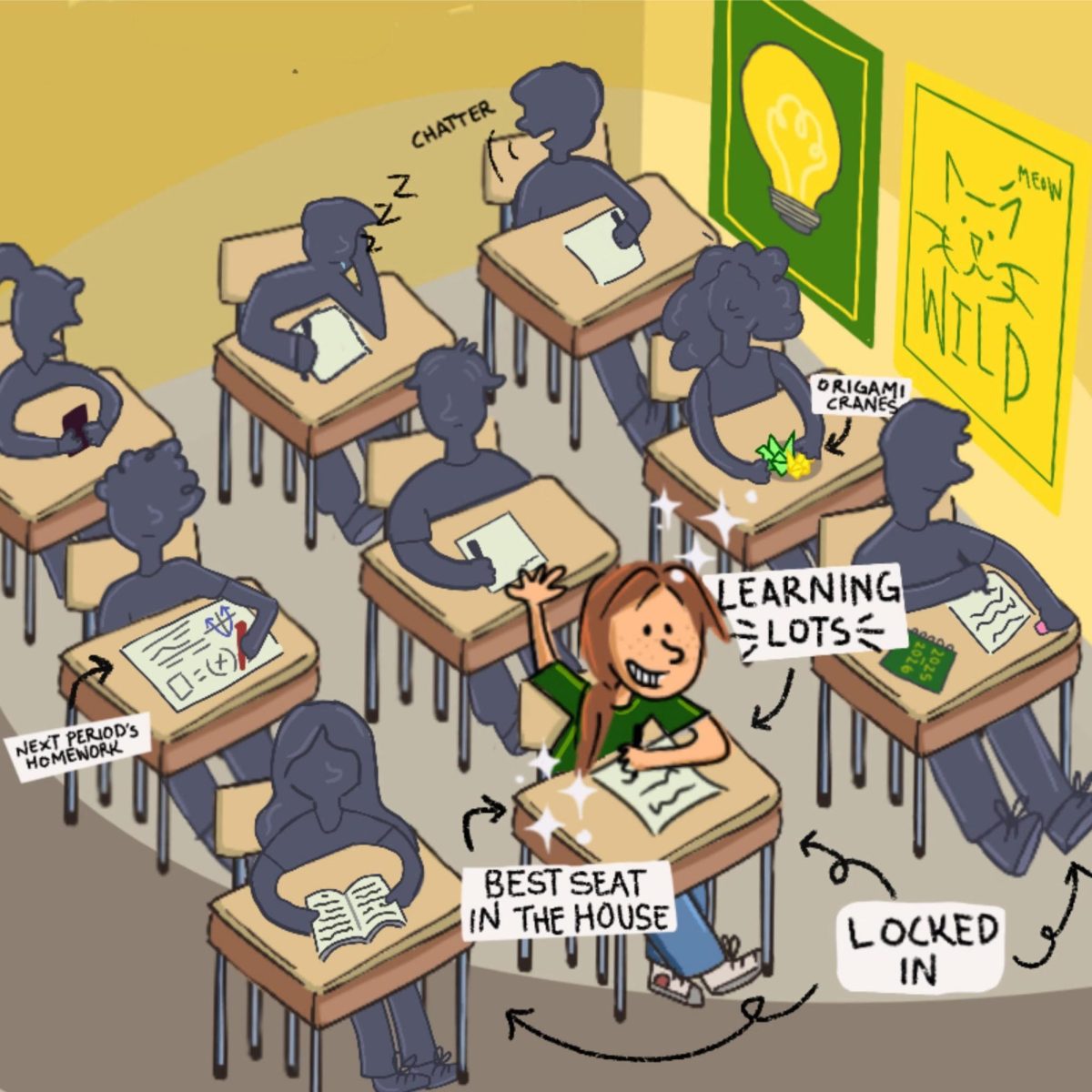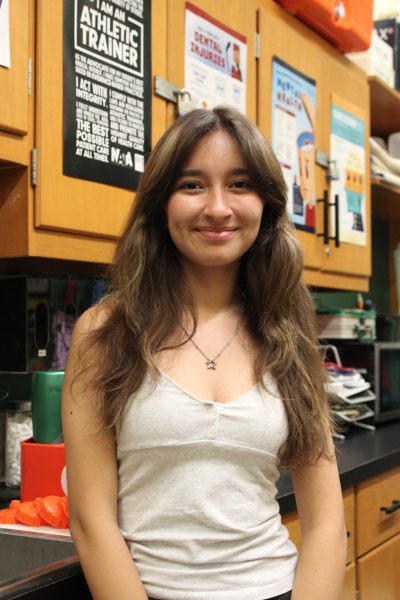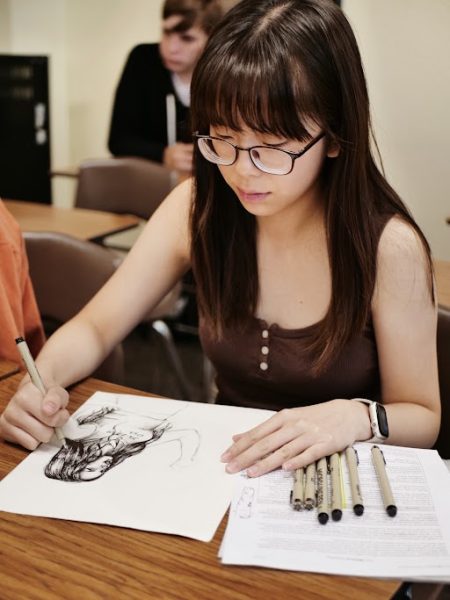Heavy bags under upperclassmens’ eyes.
Missed dances and declined social invites.
Stress headaches.
An impossible number of tasks to juggle at once.
All-nighters, early mornings.
These are just a few of the effects and sacrifices that Wildcats endure while striving for admittance to the country’s top universities and colleges.
As early as elementary school, many students are led to believe — through social media trends like college acceptance videos on TikTok and TV shows like Gilmore Girls that feature Yale-bound protagonists — that the ultimate measure of success is acceptance into a prestigious school like a top-tier UC or Ivy.
As a result, some high school students collect AP classes like Pokemon and “grind” their way to graduation.
But this pursuit of a perfect GPA and a long list of extracurriculars and leadership positions drains the spirit, stamina, and mental health of students who don’t prioritize balance in their lives.
Take me, for instance.
I frequently endure sleepless nights; struggle to make time for friends amidst a schedule crammed with studying; and feel a persistent pressure behind my eyes at the mere thought of exams that are still weeks away.
And for what? For a shot at an Ivy League school with an average 4.52% acceptance rate? Or a top California public university like UCLA, where 91% of applicants are rejected?
What I’m learning now, as a second-semester junior who loads up on electives, packs my schedule with AP classes, performs volunteer work, and yes, has deadlines to meet for the Wildcat as Opinion Editor: You don’t need to sacrifice four years of crucial self-development, happiness, and mental health just to chase the ever-changing and increasingly competitive college admissions standards.
Too many students are convinced that success is only achieved through admittance to a prestigious college or university, and they work themselves to the brink of burnout as result.
“I don’t have much balance,” Lauren Ko (’25), Wildcat Editor-in-Chief and president of five on-campus clubs, admitted. “My workload is pretty hefty, and sometimes it can be really draining.”
Similarly, Salutatorian Sophie Ho (’25) struggled to find a balance between her AP-heavy schedule, St. Jude volunteer work, and the nonprofit she founded, the Artemis Promise Foundation.
“I used to feel guilty for going out to have fun when I knew I could be using that time to study,” Ho said. “Balance is necessary to not get burnt out.”
Another student who worked relentlessly through high school is current UCLA undergraduate and former Wildcat Editor-in-Chief Ellen Kim (’24). Although she achieved her dream of attending a prestigious university, she realizes that sacrificing balance could have been avoided by prioritizing her mental health and social experiences over leadership positions and academic anxiety.
“In hindsight, I wish I knew when to quit certain things,” Kim said.
To the students who are just starting their BOHS journeys and intend to chase the “perfect” college application: It’s okay to slow down. It is possible to manage the rigorous coursework, the leadership roles, and the extracurriculars without burning out, and still achieve a competitive college app.
For instance, a schedule better tailored to your interests and overall happiness may reward you with higher grades, less stress, and more time to pursue the things you’re really passionate about. Acceptance to your dream school will not hinge on one course (say, taking World History instead of AP European History, or taking Expository Reading and Writing Course (ERWC) instead of AP English Literature and Composition, as Kim did).
Likewise for extracurriculars. Dropping one of the many clubs you may have joined to bolster your resume, or participating in two sports instead of three, or fully committing to the one activity you really love, will allow you to commit more energy and enthusiasm to the activities you truly enjoy.
Now, more than ever, colleges are evaluating applicants holistically. Each year, thousands of students apply to colleges and universities with perfect GPAs and test scores, so some schools, like the Ivy League’s Harvard and Brown, are taking a “whole student” approach to the admissions process, prioritizing letters of recommendation, essays imbued with personality and life experience, and other “often intersecting, factors—academic, nonacademic, and contextual—that, in combination, uniquely define and reflect accomplishments.”
Because colleges and universities are looking beyond the grades and tests, it’s wise to commit to activities (sticking with one program, like the Patient Care CTE pathway, for instance) and attain experiences that reflect your interests and values rather than just piling on extracurriculars.
“If you can see yourself spending the same time doing better things that will help you reach your goal, I suggest reflecting on your priorities and consider dropping the activity,” Kim advised.
It’s the strongest application that will prevail, not the longest.
It might feel daunting, at first, to exchange the most rigorous classes for more personally meaningful activities, but as Valedictorian Chloe Ribbe (’25) advised, “Focus on growth, not perfection.”
Ribbe’s daily schedule is filled with AP classes, varsity soccer, church, and community service, but she has learned that time management is the best way to prioritize mental health and “recharging.”
Ribbe balances her heavy schedule by using a planner to keep track of deadlines and to plan ahead.
“[Planners] help me prioritize tasks and to make the most of my free time, allowing me to stay on top of my schedule without feeling overwhelmed,” Ribbe said.
As a result of her savvy time management, Ribbe will graduate at the top of her class in June.
Ho uses a similar system to manage her responsibilities, which allows her to prioritize both the non-academic and academic.
“I maintain balance with [my] schedule by hanging out with friends and turning my responsibilities into things I love, such as working at a boba shop where I make fun drinks or running my charitable nonprofit,” she said.
Our four years at BOHS should be remembered for our successes in the classroom, yes, but also through social experiences like dances, football games in The Den, and beach days with friends, and not for the suffocating stress in pursuit of perfection.
We get to choose our experience, and this experience should be much more fulfilling (and healthy) than running a race to collect accolades and burning out before reaching the finish line.


